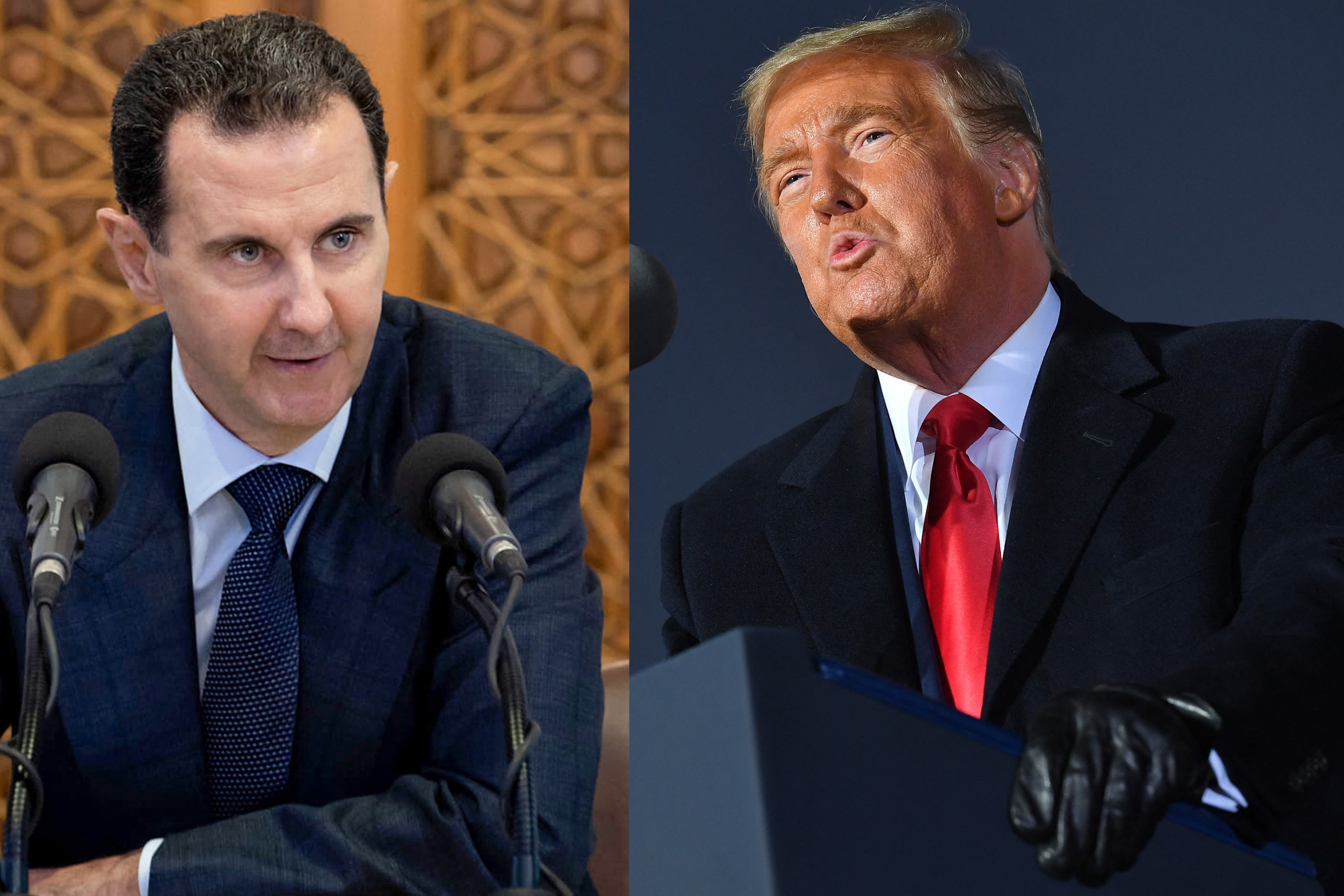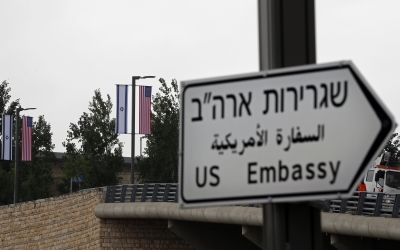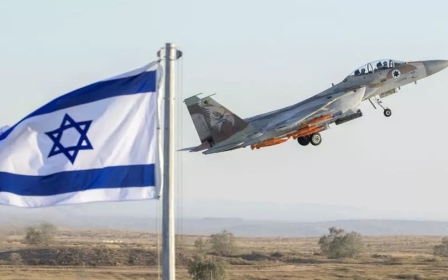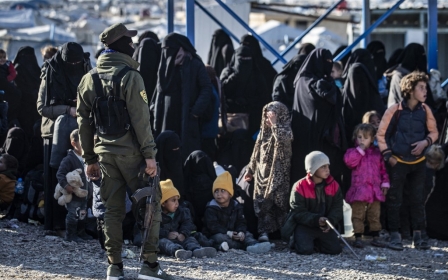Trump wanted to 'take out' Syria's President Assad, former adviser claims

Former US President Donald Trump said he wanted to "take out" Syrian President Bashar al-Assad just weeks after taking office in 2017, a former adviser has claimed.
KT McFarland, who served as a deputy national security adviser for four months, told a BBC documentary series due to air next week that Trump suggested the assassination after seeing photos of a suspected sarin gas attack.
"I said, 'well Mr President, you can't do that'," McFarland said, according to excerpts from one of the episodes obtained by the Independent.
"He said 'why?' And I said 'well, that's an act of war.'"
More than 90 people, including many women and children, died in April 2017 when the nerve agent sarin was dropped on the opposition-held town of Khan Sheikhoun in the northern province of Idlib.
Images from the immediate aftermath of the attack drew global outrage, and the Trump administration responded by firing dozens of cruise missiles at a Syrian airbase from where the alleged chemical weapons attack was launched.
"Trump glares at me, folding his hands in this serious Donald Trump way. I knew what he wanted to do was somehow punish Assad, and not let him get away with this," McFarland said.
Syria had denied involvement, claiming it no longer possessed chemical weapons following a 2013 deal under which it pledged to surrender its chemical arsenal.
However, a United Nations report said it was "confident" that Assad's government was responsible for the attack.
Sidelining Palestinians
In addition to McFarland's comments, the BBC documentary episode, which airs next week, also shares other details about the former administration's foreign policy decisions, including the Palestinian-Israeli conflict.
Ron Dermer, former Israeli ambassador to the US, told the BBC that Israeli Prime Minister Benjamin Netanyahu convinced Trump to sideline Palestinians and instead work to unite Gulf Arab countries against Iran.
"The prime minister did his best to convince President Trump that there was a real possibility of a strategic breakthrough with the Arab states," Dermer told the BBC.
"When Israeli and Arab leaders are on the same page when it comes to Iran, people should pay attention."
Through agreements brokered by the Trump administration, the United Arab Emirates, Bahrain, Sudan and Morocco have all normalised relations with Israel, breaking a long-standing position in the Arab League that normalisation with Israel would only come with concessions for Palestinians.
Husam Zomlot, then head of the Palestinian Liberation Organisation mission to the US, said in the documentary that the deterioration of relations with the US was due to Trump's decision to move the US embassy in Israel from Tel Aviv to Jerusalem.
"I just wanted to make sure right then that Jared knows if he does that, he will never see us again," Zomlot said.
"And that's exactly the last sentence I said, 'This will be the last meeting between us', and it was indeed the last meeting between us."
US President Joe Biden has repeatedly said that his administration has no plans to move the US embassy out of Jerusalem or to revoke the US's recognition of the contested capital.
Last month, the Biden administration said it planned to restore aid to Palestine and re-open Palestinian diplomatic missions in Washington that were shuttered under Trump.
Middle East Eye delivers independent and unrivalled coverage and analysis of the Middle East, North Africa and beyond. To learn more about republishing this content and the associated fees, please fill out this form. More about MEE can be found here.






